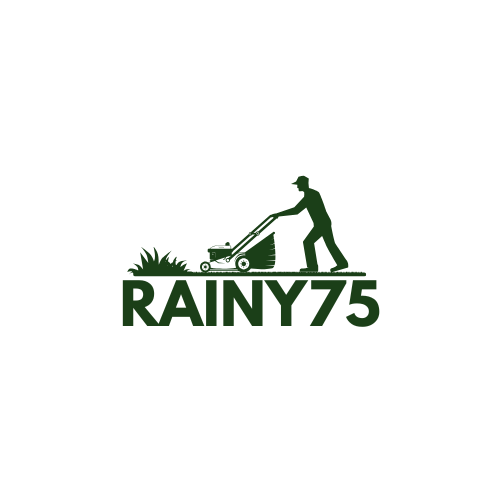When it comes to landscaping, rocks can be the unsung heroes of outdoor design. They add texture, depth, and a touch of nature’s elegance. But what happens when those beautiful stones decide to play hide and seek? Enter landscaping rock glue—the superhero in disguise that keeps everything in place.
Landscaping Rock Glue
Landscaping rock glue serves as a vital component in securing stones for outdoor projects. It ensures stability while enhancing the aesthetics of the landscape.
What Is Landscaping Rock Glue?
Landscaping rock glue is a specialized adhesive designed for outdoor use. This product bonds rocks securely to various surfaces. It’s often water-resistant, providing durability against weather conditions. Available in different formulations, users can choose based on specific project needs. Additionally, some glues excel in bonding porous materials, while others work better with smoother surfaces.
Key Components of Landscaping Rock Glue
Landscaping rock glue typically contains several key components. Specialty polymers create a strong bond that resists degradation. Water-resistant additives enhance longevity against moisture damage. Many varieties include UV inhibitors to prevent discoloration from sunlight exposure. Solvent-based formulations offer fast-drying properties, while water-based alternatives focus on eco-friendliness. Ultimately, understanding these components leads to better selection for specific landscaping needs.
Benefits of Using Landscaping Rock Glue

Landscaping rock glue provides several benefits that enhance outdoor projects. Its ability to secure stones effectively contributes to a well-structured landscape.
Enhanced Stability for Rocks
Enhanced stability is one of the primary advantages. Landscaping rock glue prevents rocks from shifting during heavy rains or high winds. It ensures that decorative stones maintain their intended design and arrangement. A strong bond creates a cohesive look, making maintenance easier and reducing the need for regular adjustments. Additionally, rocks glued in place resist movement caused by foot traffic, ensuring a safer outdoor area.
Weather Resistance and Durability
Weather resistance plays a crucial role in outdoor applications. Landscaping rock glue features waterproof properties that protect it from rain and snow. This durability extends the life of the adhesive even in harsh climates. UV inhibitors within the glue prevent discoloration and degradation from sunlight exposure. Such resilience guarantees that landscaping projects remain visually appealing over time, maintaining both functionality and aesthetics in various weather conditions.
Application Techniques for Landscaping Rock Glue
Using landscaping rock glue effectively requires attention to detail in both surface preparation and the application process.
Surface Preparation
Surface preparation ensures optimal adhesion for landscaping rock glue. Cleaning the area removes dirt, dust, and debris, providing a clean surface for the glue. Inspecting for moisture becomes essential, as dry surfaces promote stronger bonds. If necessary, wait until the environment is dry before proceeding. Some surfaces may require roughening to enhance grip, especially smooth or glossy surfaces. Additionally, ensuring stability under the rocks prevents shifting once the glue is applied.
Step-by-Step Application Process
Applying landscaping rock glue follows a straightforward sequence. First, select the glue formula appropriate for the specific project and surface type. Next, dispense an adequate amount directly onto the base or stone, ensuring even distribution. Position the rock and press down firmly, allowing the glue to bond effectively. It’s crucial to avoid disturbing the rocks during the initial curing time, generally specified on the product label. Once set, inspect the layout for stability, making adjustments only if necessary.
Tips for Choosing the Right Landscaping Rock Glue
Selecting the appropriate landscaping rock glue requires understanding available options and specific project needs.
Types of Adhesives Available
Various adhesives cater to diverse landscaping projects. Polyurethane glue offers strong bonding and exceptional weather resistance. epoxy adhesives create a rigid bond and work well for heavier stones. Silicone-based adhesives provide flexibility, making them ideal for irregular surfaces. Ready-to-use formulas simplify the application process for beginners, while professional-grade options suit experienced landscapers needing durability.
Factors to Consider When Selecting Glue
Consider several factors when choosing landscaping rock glue. Surface type plays a critical role, as concrete, soil, and stone each require different adhesion properties. Application temperature impacts curing time and performance; warmer conditions often yield stronger bonds. The project’s scope represents another significant factor, with larger installations needing heavier-duty adhesives. Evaluate environmental factors like exposure to water and sunlight, as these influence the longevity of the bond. Always choose a formula with adequate weather resistance and UV protection to maintain aesthetic integrity over time.
Conclusion
Landscaping rock glue plays a vital role in maintaining the beauty and stability of outdoor designs. By choosing the right adhesive, homeowners and landscapers can ensure that stones remain securely in place, even in challenging weather conditions. The various formulations available cater to different needs, offering durability and resistance to the elements.
Proper application techniques and surface preparation are essential for achieving optimal results. With the right knowledge, anyone can effectively use landscaping rock glue to enhance their outdoor spaces. This not only simplifies maintenance but also preserves the aesthetic appeal of landscaping projects for years to come. Investing time in selecting the right glue and applying it correctly will yield lasting benefits for any landscape design.

